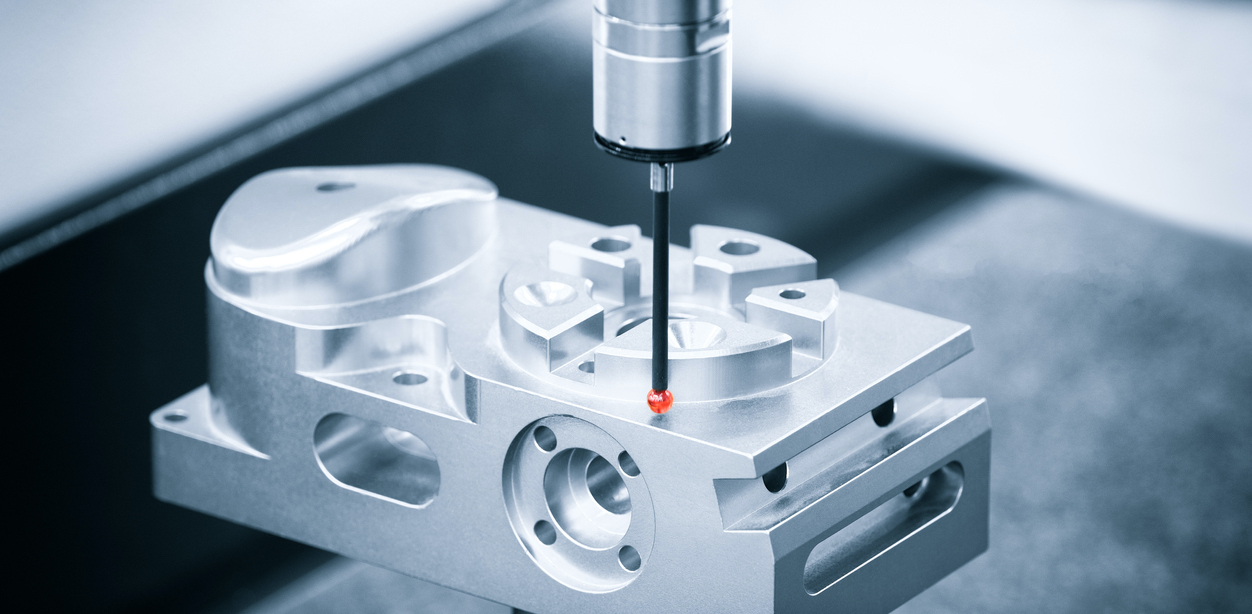How We Run a CNC Machine Shop with Quality Control You Can Trust
The Full Guide to Machine Shop Quality Control
When it comes to CNC machined components, precision is essential to your application. Working with a partner that you know can make the parts you need perfectly every time is crucial to keep your operations running efficiently.
While pricing and delivery times are also important to think about, quality should always be the top priority. Most CNC machine shops make claims of creating high-quality products — but how can you know who to trust?
There are a number of considerations to make while choosing a machine shop that you know will deliver quality results. See a breakdown of the most integral considerations below.
1. Certifications
Certifications are an easy way to prove a manufacturer’s claims about quality management. ISO (the International Organization for Standardization) develops and publishes standards across a wide variety of characteristics, including quality, environmental responsibility, health and safety, energy management, food safety, IT security, and more.
The ISO 9000 series is specifically aimed at standardizing quality management. It measures companies’ quality based on how strong their customer focus is, how the top level of company leaders manage and set business focuses, their approach to everyday processes, and their efforts towards continuous improvement.
China Prototype Machining is certified to the ISO 9001:2015 and ISO 13485 Quality Standards. As mentioned, ISO 9001:2015 represents correct quality management as a whole, including both product quality systems and good customer service practices.
ISO 13485, on the other hand, is a more specific certification zeroing in on the medical equipment industry. Medical devices have much more stringent standards of cleanliness and precision due to the sensitive nature of their use. An ISO 13485 certified company will be able to provide products that stand up to the strict regulations in place for medical equipment, ensuring reliable supplies for increased patient health and safety.
Additional services like ultrasonic cleaning ensure compliance with sanitization requirements so equipment is safe and ready for use. Ultrasonic cleaning uses high-frequency sound waves, avoiding harsh chemicals that can damage the equipment in the long run and be difficult to dispose of. China Prototype Machining provides this service to make our CNC machine shop a one-stop solution for medical facilities seeking equipment.
2. Quality Control Equipment
The technology used to ensure quality affects both accuracy and efficiency in the manufacturing process. If a machine shop is using less consistent, less accurate technology to measure quality, then they may not be able to deliver uniform high-quality parts consistently.
China Prototype Machining uses CMM (coordinate-measuring machine) technology to get consistently accurate readings and uncover flaws early in the process. A CMM probes components to detect any differences on the surfaces of these objects.
CMMs are widely accepted as some of the most reliable and precise machines for ensuring quality consistently. Using CMM technology reduces human error and is able to determine quality rapidly when compared to other, more manual methods. Difficult to see or reach part dimensions are able to be easily measured using CMM.
Fragile parts are also better measured and handled when quality checked by specific CMM technology, as there are no-contact options that still give accurate readings of even the smallest and most complicated of parts. Through an extensive list of CMM equipment options, China Prototype Machining is able to ensure the highest quality across all of our machined components.
3. Types of Testing
Not every report or testing method is created equal, as different types of testing can address a variety of potential problems in a variety of different components and applications. That’s why, at China Prototype Machining, we perform leak and torque testing as well as essential reports like FMEA, PPAP, process validation, R&R, and capabilities studies.
FMEA (Failure Mode and Effects Analysis) is a step-by-step method that lays out how to identify all potential failures in a final product from its design and figure out what the consequences of each potential failure would be. It was started in the 1940s by the U.S. military and still holds up as an effective quality check on accepted design, manufacturing, and assembly processes today.
PPAP (Production Part Approvement Process) is the industry standard for achieving engineering design and product specification requirements. It standardizes the process of a part reaching approval for use from design to creation to assembly. It also helps to measure the differences between the original design and the final part. Ultimately, PPAP is meant to provide peace of mind both to the manufacturer and to their customers that a good, consistent process is in place for making sure parts are high-quality at every phase of design and production, and to reduce confusion or delays between manufacturing by the supplier and use by the customer.
Process validation is geared at ensuring the reliability and consistency of the design and production process to create uniform, high-quality parts across runs. Similarly, R&R is a way to measure repeatability and reproducibility in manufacturing processes, reducing part variation. Capability studies are meant to measure all aspects related to the ability to create products that satisfy customers consistently, including equipment used, processes followed, and more.
Leak testing evaluates whether a component or piece of equipment is operating within a specific, predetermined leak limit. Lastly, torque testing determines how a component will react when turned and is usually used to test fastened parts. It identifies how a product reacts to being turned during normal operation deliberately until it fails or breaks to establish its limitations or failure level.
China Prototype Machining Provides Premier Quality CNC Machined Components
China Prototype Machining’s certifications, CMM testing technology, and extensive testing methods and processes for continuous improvement demonstrate our commitment to quality. Since 1978, we’ve fostered a passionate pride in our work as a precision CNC machine shop. Every day, our experts design, create, and assemble top-notch, reliable parts and solutions at competitive prices.

